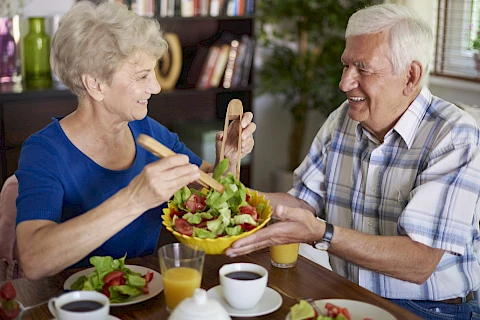
Heart health is crucial for seniors, as the risk of heart disease increases with age. Caregivers play a significant role in maintaining and improving heart health for the seniors they look after. Being informed and proactive can make a big difference in preventing heart issues and promoting overall well-being.
Risk Factors for Heart Disease
Several factors loved ones may need to identify to ensure they can be on the lookout for more heart-related problems.
Age-Related Risk Factors
As people age, their risk of heart disease increases. This is due to changes in the blood vessels and heart, which can become stiffer and less efficient over time. Age also often brings other health conditions, such as high blood pressure and diabetes, which can increase the risk of heart problems.
Lifestyle-Related Risk Factors
Certain lifestyle choices can significantly impact heart health. Smoking, poor diet, lack of exercise, and excessive alcohol consumption are all known to contribute to heart disease. By helping seniors make healthier choices, caregivers can greatly reduce these risks.
Genetic Predispositions
Some people are more prone to heart disease due to their genetic makeup. If there is a family history of heart issues, it's important to monitor heart health closely Understanding the family's medical history can help caregivers address potential risks early on.
Prevention Strategies
While seniors and their caregivers cannot eliminate the risk of heart disease, there are several things they can do to reduce the risk.
Healthy Diet
A heart-healthy diet is essential for seniors. Caregivers should focus on providing foods high in fiber and low in saturated fats, such as fruits, vegetables, whole grains, and lean proteins. Reducing salt intake can also help manage blood pressure, which is vital for heart health.
Exercise
Physical activity is crucial for strengthening the heart and improving circulation. Caregivers should encourage seniors to engage in routine exercise, such as walking, swimming, or gentle yoga. Even light activities, done regularly, can have significant benefits for heart health. Always consult your loved one's care provider before starting a new exercise routine.
Reducing Stress
Managing stress and mental health is also important for maintaining a healthy heart. Caregivers can encourage relaxation techniques like deep breathing, meditation, or hobbies that help decrease stress. Support from friends and family can also make a big difference in reducing stress levels and improving overall well-being.
Attending Medical Appointments
Regular medical check-ups and screenings are crucial for catching potential heart issues early. Caregivers should encourage seniors to attend regular doctor visits and ensure they follow through with recommended screenings and tests.
Recognizing Warning Signs
There are several warning signs that caregivers may need to watch out for as they interact with senior loved ones.
Common Symptoms of Heart Issues
Knowing the symptoms of heart problems can be life-saving. Caregivers should watch out for chest pain, shortness of breath, fatigue, dizziness, and swelling in the legs or ankles. These can all be signs that something is wrong with the heart.
When to Seek Immediate Medical Attention
Some symptoms require urgent care. If a senior experiences severe chest pain, sudden shortness of breath, or fainting, caregivers should seek medical help immediately. Quick action can prevent serious complications and potentially save a life.
Importance of Monitoring Vital Signs
Regularly checking blood pressure, heart rate, and cholesterol levels can help catch issues before they become severe. Caregivers should keep a log of these vital signs and report any concerning changes to a healthcare professional.
Practical Tips for Daily Care
Incorporating heart-healthy foods into meals is essential. Caregivers should prepare meals including vegetables, fruits, lean proteins, and whole grains. It's important to avoid processed foods and limit salt and sugar intake. Simple swaps, like using olive oil instead of butter, can make a big difference in heart health.
Encouraging physical activity and safe exercises can also help improve seniors' heart health. Caregivers should find enjoyable and safe exercises for seniors, such as walking, light stretching, or even dancing. It's important to always tailor the activity to the senior's fitness level and health conditions.
Creating a stress-free environment can significantly impact heart health. Caregivers should encourage regular routines, provide social support, and establish a comfortable living space. Activities like listening to favorite music or reading can be soothing and help reduce stress.
Proper medication management and adherence are vital for maintaining heart health. Caregivers should ensure seniors take their medications correctly by setting up reminders, organizing medicines in a pillbox, and keeping track of refills. Proper medication management can prevent heart health from deteriorating.
Offer More Help to Seniors at Home
Maintaining heart health in seniors is vital, and caregivers have a crucial role. By understanding the risk factors, practicing prevention strategies, recognizing warning signs, and implementing daily care tips, caregivers can significantly improve the heart health of their loved ones. Staying informed and proactive is key. For additional support and professional help caring for your senior loved one at home, contact Senior Helpers San Jose. We proudly serve San Jose, Santa Clara, Santa Cruz, and Campbell, and are here to support you in your caregiving journey.